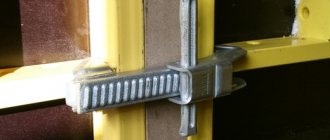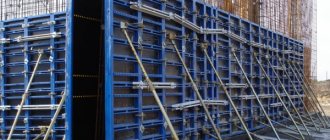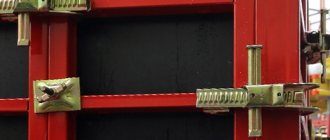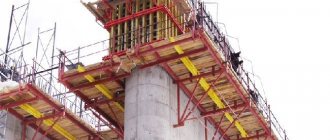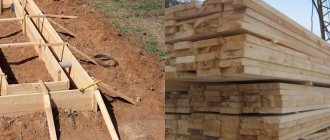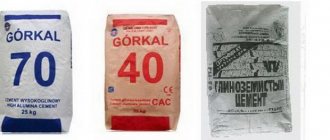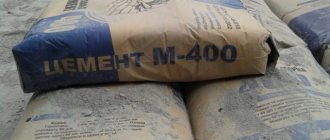When using formwork in monolithic construction, special attention is paid to locking systems. They ensure the stability and stability of the structure forming liquid concrete, guarantee its rigidity and the tightness of all connecting seams. Let's take a closer look at what types of formwork locks there are, their description and the use of each type. This will help you make the right choice of connecting elements for a specific type of structure.
There are the following types of formwork locks, each of which has its own purpose and performance characteristics:
- universal;
- wedge;
- spring;
- elongated;
- screw.
Without the listed connecting parts, it is impossible to produce a high-quality monolithic reinforced concrete structure. They speed up the assembly of the formwork system and subsequent dismantling. Properly selected formwork locks, the price of which depends on the type of part and the material of its production, simplify the work as much as possible. Their installation and dismantling is carried out with a hammer or wrenches, which increases the productivity of the construction team and guarantees the integrity of the reinforced concrete or concrete structure.
Our company offers to buy formwork locks with maximum performance characteristics in Moscow. We offer a wide range of components for formwork systems of all sizes and types. We offer affordable prices for all formwork locks presented in the catalog, as well as rental of the necessary equipment.
Physical and technical features of formwork locks
Since formwork locks ensure the integrity of the entire structure, they are subject to high operational requirements. In their production, gray cast iron or steel is used. Both wedge, spring, screw and extended fasteners, as well as a universal lock for formwork, the price of which in our company will range from 980 to 1050 rubles/piece, are manufactured using casting technology. It provides the connecting unit with high strength and reliability.
When choosing a cast wedge lock or another type, pay attention to:
- production material - steel 35GL, cast iron and steel, gray cast iron;
- Part coatings - anodizing, powder painting, galvanizing. From us you can buy formwork locks at the manufacturer's price without coating. Their cost will be lower, but so will their service life;
- permissible insert thickness.
The formwork locks listed above, the price of which will range from 450 to 1050 rubles / piece, are used to fasten the panels of aluminum, steel, plastic and small-panel formwork systems. They are used on both horizontal and vertical connecting seams.
Characteristics of wedge lock for formwork
Most often, to ensure structural rigidity, a wedge lock is used for formwork - a connecting part that is intended not only for connecting panels, but also for aligning panels and panels with each other. Correctly installed wedge locks guarantee the creation of very tight and load-resistant joints. This allows you to create a perfectly smooth and even reinforced concrete surface.
A classic wedge lock consists of a wedge and jaws. The wedge can be made of cast iron, and the jaws can be made of steel. This combination of materials will allow you to obtain a durable and load-resistant fastening unit that can be used many times. From us you can rent a wedge lock for used formwork or buy a new connecting part. The catalog also includes wedge fasteners made entirely of cast iron or steel.
To fix the cast wedge lock for formwork at the junction of the panels, you need to drive the wedge into a special hole provided in the jaws using a hammer. When the clamp is fully seated, the jaws are compressed in the profile channel - due to which the wedge formwork becomes rigid and durable. The fit of the wedge also guarantees alignment and reliable tightening of the panels. High-quality wedge locks for formwork have a long service life. Fasteners can be used dozens of times without fear of losing individual parts of the system. Technically, wedge locks for formwork, the price of which in our company will be one of the most favorable in Moscow, have a non-demountable design.
Other characteristics of connecting elements:
- affordable price - a wedge lock made of cast iron costs from 400 rubles per piece;
- compatible with both steel and aluminum formwork;
- light weight - a wedge lock for formwork has a mass of 2.5-3.6 kilograms or more;
- strength and resistance to atmospheric and weather loads - if the wedge lock is galvanized or powder coated;
- ease of operation, dismantling and storage.
When purchasing wedge locks for used formwork from us at a price lower than others, keep in mind that the color of the fastener may be different. It depends on the type of protective coating. In the catalog you will find a wedge formwork lock in black, red or blue, metallic or yellowish. The color of the part does not affect the physical and technical qualities. It only indicates the type of protection. For example, a galvanized wedge lock for formwork will have a silver-metallic tint, while an anodized product will have a yellowish tint. Accordingly, a powder-painted wedge lock for formwork, the price of which will depend on the type of protective coating, will be colored - blue, black, red.
If you rent or buy used wedge locks from us at an affordable price, rest assured that all fasteners included are of high quality (including coatings). We offer reliable and safe equipment for formwork systems. Their installation will require the purchase of not only wedge locks for formwork - you can buy everything you need in Moscow on favorable delivery terms from our company.
Wedge lock
To assemble panels, a wedge crab lock for formwork is most often used. This is a universal device that makes it possible to connect and align the fastening structure with great precision. The lock is in the form of a cast bracket, has two longitudinal grips and a jumper, and a wedging lever is located inside it. Visually, the device is shaped like a crab.
The process of installing formwork panels is carried out with great precision, then a wedge lock is placed in adjacent areas of the frame, after which a lever is driven into the seat using a hammer. Disassembly is carried out in the same way, that is, the wedge is knocked out with a hammer from the back of the socket.
Advantages
Castle wedge crab
, due to its simplicity of design, has a number of advantages:
- easy assembly;
- no need to use special tools during installation;
- you can screed vertically and horizontally;
- The lock is of high quality, made of cast iron and steel.
Features of universal formwork locks
A universal fastening element or crocodile lock for formwork is a subtype of a wedge connecting product. It is similarly tightened at the joints of aluminum or steel panels, but is mainly used on large panel formwork systems. Like a wedge lock, the universal type of fastener has a wedge that is fixed in a hole on the upper jaw. The differences between a wedge and a universal product are in the type of lower jaw and the placement of the wedge. It fits into the holes in the top tab and has a groove in the middle. This groove is fixed on the ribs that provide the surface of the lower jaw. The design of the universal formwork lock allows you to easily and quickly adjust the thickness of the insert. Simply put, use the connecting piece on boards and panels of various sizes.
Purpose
All the locks presented above give the joints rigidity and stability. Their main purpose is to maintain the required structure configurations, which are filled with concrete mixture.
Moreover, by means of locks, the panels of the formwork structure are firmly connected to each other, thanks to which they can withstand the impressive technological loads formed by the concrete solution. The procedures for distributing, laying and compacting the concrete mixture become simpler, reducing the cost of working time and even money.
Description and physical and technical data of formwork screw locks
Inserts with dimensions from 200 to 250 mm can be fixed using a screw lock for formwork - a fastener consisting of a movable and fixed part, a screw-on threaded element (tightening screw) and a fixing nut. Like a universal lock for formwork, screw fasteners are used to connect the joints of panels and panels, as well as to align them. This kind of formwork lock is made mainly from steel. Powder paint serves as a protective coating in 78% of cases. Due to its simple design, the fastening element is durable and easy to use. Its main drawback is its heavy weight. The larger the insert this formwork lock can grip, the greater its weight. Approximate weight: 5 kg.
Formwork ties in Moscow
Main characteristics:
- max tensile load, t – 11 / 16
- standard length – 1.0 m
- diameter – 17 mm
- steel grade – St3; St35
- weight 1 linear m – 1.4 kg
Main characteristics:
- model – cast end anchor
- diameter – 17 mm
- steel grade – St3
- weight – 2.5 kg
Main characteristics:
- platform diameter – 90 mm
- material – high-strength cast iron
- cast iron grade – VCh-40
- thread diameter – 17 mm
- coating – galvanized
- weight – 0.45 kg
Main characteristics:
- platform diameter – 90 mm
- material – steel St35
- thread diameter – 17 mm
- coating – powder painting
- weight – 0.65 kg
Scope of application and characteristics of extended formwork locks
An elongated lock is considered a type of screw fastener - a product also equipped with a threaded fastener, a movable and a fixed part. Its difference from the previous connecting element is in the dimensions of the insert - 250 to 350 mm. An elongated lock is suitable for any type of formwork, but most importantly, it can be used to fix two panels at right angles. Therefore, when laying a monolithic foundation, in 96% of cases this particular fastener is used.
It is made of steel and coated with protective paint. Galvanized and anodized products are also produced. But their cost will be slightly higher than powder-coated formwork locks. The advantages of fasteners will be:
- smooth and adjustable connection of formwork panels;
- the ability to install the product without outside help and tools;
- used when joining hinged corners, internal and external.
What are spring locks for formwork?
When building a complex monolithic reinforced concrete structure, you will need various types of formwork locks, which you can buy at a low price from our company. Including special clamps, which are called spring fasteners. They consist of reinforcement that is threaded through the panels. Special locks are put on one end and the other. One latches automatically, and the other is tightened with a special key to the required degree. After fixing, the protruding edges of the reinforcement are cut off. Removing the clamps does not involve dismantling the fittings. It remains in a monolithic structure. Dealing with such a clamp will be more difficult than with the locks listed above.
In our company, all used formwork locks have a minimum price. We offer a wide range of high-quality products, for which we provide guarantees. If you have any difficulties choosing the type or volume of locking systems, call our manager. We will help you make the right choice.
